Francis Bacon, 1st Viscount St Alban, also known as Lord Verulam, was an English philosopher
Francis Bacon, 1st Viscount St Alban, also known as Lord Verulam, was an English philosopher and statesman who served as Attorney General and Lord Chancellor of England. Bacon led the advancement of both natural philosophy and the scientific method and his works remained influential even in the late stages of the Scientific Revolution.
Bacon has been called the father of empiricism. He argued for the possibility of scientific knowledge based only upon inductive reasoning and careful observation of events in nature. He believed that science could be achieved by the use of a sceptical and methodical approach whereby scientists aim to avoid misleading themselves. Although his most specific proposals about such a method, the Baconian method, did not have long-lasting influence, the general idea of the importance and possibility of a sceptical methodology makes Bacon one of the later founders of the scientific method. His portion of the method based in scepticism was a new rhetorical and theoretical framework for science, whose practical details are still central to debates on science and methodology. He is famous for his role in the scientific revolution, begun during the Middle Ages, promoting scientific experimentation as a way of glorifying God and fulfilling scripture. He was renowned as a politician in Elizabethan England, as he held the office of Lord Chancellor.
Bacon was a patron of libraries and developed a system for cataloguing books under three categories – history, poetry, and philosophy – which could further be divided into specific subjects and subheadings. About books he wrote, "Some books are to be tasted; others swallowed; and some few to be chewed and digested." The Shakespearean authorship thesis, which was first proposed in the mid-19th century, contends that Bacon wrote at least some and possibly all of the plays conventionally attributed to William Shakespeare.
Bacon was educated at Trinity College at the University of Cambridge, where he rigorously followed the medieval curriculum, which was presented largely in Latin. He was the first recipient of the Queen's counsel designation, conferred in 1597 when Elizabeth I reserved him as her legal advisor. After the accession of James I in 1603, Bacon was knighted, then created Baron Verulam in 1618 and Viscount St Alban in 1621. He had no heirs and so both titles became extinct on his death in 1626 at the age of 65. He died of pneumonia, with one account by John Aubrey stating that he had contracted it while studying the effects of freezing on meat preservation. He is buried at St Michael's Church, St Albans, Hertfordshire.
EARLY LIFE AND EDUCATION
Francis Bacon was born on 22 January 1561 at York House near Strand in London, the son of Sir Nicholas Bacon (Lord Keeper of the Great Seal) by his second wife, Anne (Cooke) Bacon, the daughter of the noted Renaissance humanist Anthony Cooke. His mother's sister was married to William Cecil, 1st Baron Burghley, making Burghley Bacon's uncle.
Biographers believe that Bacon was educated at home in his early years owing to poor health, which would plague him throughout his life. He received tuition from John Walsall, a graduate of Oxford with a strong leaning toward Puritanism. He attended Trinity College at the University of Cambridge on 5 April 1573 at the age of 12, living there for three years along with his older brother Anthony Bacon under the personal tutelage of Dr John Whitgift, future Archbishop of Canterbury. Bacon's education was conducted largely in Latin and followed the medieval curriculum. It was at Cambridge that Bacon first met Queen Elizabeth, who was impressed by his precocious intellect, and was accustomed to calling him "The young lord keeper".
His studies brought him to the belief...
LINK TO ARTICLE: http://en.wikipedia.org/wiki/Francis_Bacon
TAGS: Francis Bacon, Viscounts in the Peerage of England, Authors of utopian literature, 17th-century King's Counsel, Philosophers of technology, Philosophers of science, Philosophers of religion, Philosophers of mind, Philosophers of logic, Philosophers of law, Philosophers of history, Philosophers of ethics and morality, Philosophers of culture, People of the Elizabethan era, People from Westminster, People from St Albans, Peers of England created by James I, Ontologists, Natural philosophers, Moral philosophers, Metaphysicians, Members of the Privy Council of England, Members of the pre-1707 Parliament of England for the University of Cambridge, Members of the Parliament of England (pre-1707) for Liverpool, Members of the Parliament of England (pre-1707) for Ipswich, Members of Gray's Inn, Lord chancellors of England, Logicians, Knights Bachelor, Epistemologists, English spies
#GeneralKnowledge #AudibleWikiFactory #Audible #Wikipedia #FrancisBacon
-
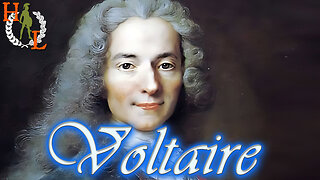 2:10:58
2:10:58
Heroes and Legends Documentary Channel
2 months agoVoltaire: The Rascal Philosopher
22 -
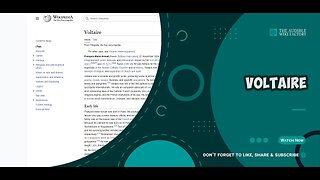 1:00:30
1:00:30
The Audible Wiki Factory
1 year agoFrançois-Marie Arouet was a French Enlightenment writer, historian, and philosopher
100 -
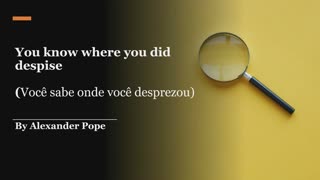 1:01
1:01
Leomont83
1 year agoRecitation of YOU KNOW WHERE YOU DID DESPISE by Alexander Pope (London, England, 1688-1744)
24 -
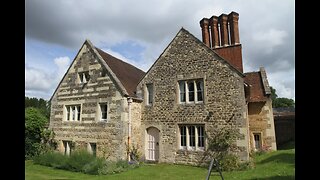 53:19
53:19
sststr
1 year ago"Paul Clifford", Chapter 11, by Edward Bulwer-Lytton
46 -
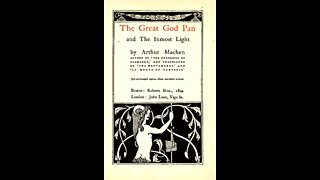 2:12:19
2:12:19
sststr
1 year ago"The Great God Pan" by Arthur Machen
92 -
 54:50
54:50
sststr
1 year ago"Paul Clifford", Chapter 18, by Edward Bulwer-Lytton
97 -
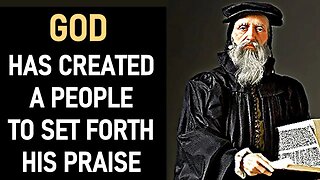 33:53
33:53
Christian Sermons and Audio Books
1 year agoSermon on Deuteronomy 1:1-3 - John Calvin
1921 -
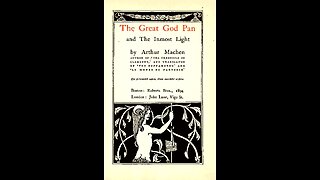 2:12:19
2:12:19
sststr
1 year ago"The Great God Pan" by Arthur Machen
85 -
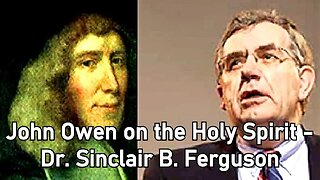 1:12:15
1:12:15
Christian Sermons and Audio Books
1 year agoJohn Owen on the Holy Spirit - Dr. Sinclair B. Ferguson
230 -
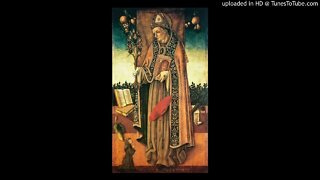 20:05
20:05
Chesterton Radio
3 years agoOn the Degrees of Ascension to God - Saint Bonaventure
72